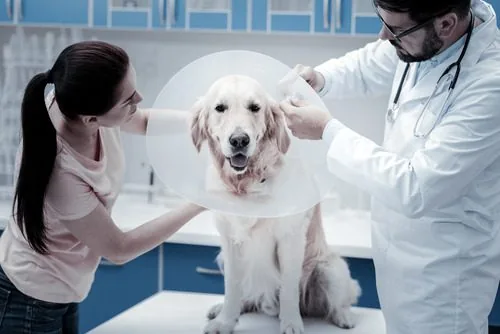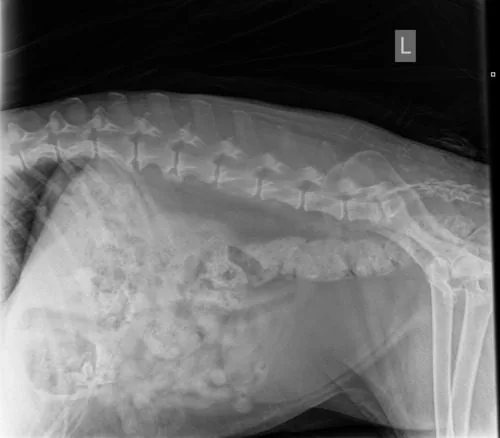When is Dog Diarrhea an Emergency?
Dog owners know all too well that occasional digestive upset isn’t uncommon. But when a bout of diarrhea lingers or comes with additional symptoms, it can quickly raise alarm bells. So, when is dog diarrhea an emergency? This blog explores the red flags, potential causes, and when to seek urgent veterinary care. If you live in or around Winter Haven, FL, and need expert help, call Veterinary Healthcare Associates at (863) 324-3340 for guidance.

How to Recognize Diarrhea in Dogs
Diarrhea refers to loose, watery, or unusually frequent bowel movements. It can vary in consistency, color, and smell, depending on the cause. Some episodes resolve within a day, especially if linked to a minor dietary issue. However, others may signal something more serious.
Types of Diarrhea to Watch For
- Acute Diarrhea: Sudden onset, usually short-lived. Often caused by stress, dietary indiscretion, or parasites.
- Chronic Diarrhea: Persists for weeks or recurs often. Can stem from inflammatory bowel disease, food intolerances, or underlying health conditions.
- Small Bowel Diarrhea: Large amounts of loose stool, often less frequent.
- Large Bowel Diarrhea: Smaller amounts, increased frequency, and urgency. May include mucus or straining.
When is Dog Diarrhea an Emergency?
While many cases of dog diarrhea resolve on their own, some require immediate veterinary attention. So, when is dog diarrhea an emergency? The answer depends on your dog’s overall health, age, and the presence of other symptoms.
Red Flag Symptoms That Warrant Immediate Care
If your dog shows any of the following signs, call Veterinary Healthcare Associates at (863) 324-3340 or seek emergency veterinary care right away:
- Lethargy or weakness: If your dog seems unusually tired or unable to stay awake, it may signal dehydration or a systemic problem.
- Blood in stool: Bright red blood or dark, tarry stools can point to internal bleeding or serious gastrointestinal disease.
- Vomiting: When diarrhea and vomiting happen together, dehydration can set in quickly, especially in puppies and senior dogs.
- Fever: A rectal temperature above 103°F may indicate an infection or inflammation.
- Abdominal pain or bloating: Dogs in pain may whimper, guard their belly, or assume a prayer-like posture.
- Ongoing diarrhea for more than 24–48 hours: Especially concerning if there’s no food or water intake.
- Signs of dehydration: Dry gums, sunken eyes, and loss of skin elasticity are signs your dog may be dangerously dehydrated.
In these cases, waiting it out at home is not the right call. Fast action could prevent a serious health decline.
Common Causes of Dog Diarrhea
Understanding what might be behind your dog’s diarrhea can help you respond appropriately and know when to involve your vet.
Dietary Indiscretion
Dogs are notorious for eating things they shouldn’t. Garbage, spoiled food, or foreign objects can all cause stomach upset. While mild cases may resolve quickly, ingestion of toxic substances can become life-threatening.
Parasites and Infections
Worms, giardia, coccidia, and bacterial infections like salmonella can all trigger diarrhea. These are especially common in puppies and dogs in crowded environments such as shelters or boarding facilities.
Dietary Changes or Sensitivities
Sudden changes in diet or food intolerances can lead to gastrointestinal upset. If you recently introduced new food or treats, this could be the culprit.
Chronic Conditions
Long-term digestive issues may result from conditions like:
- Inflammatory bowel disease (IBD)
- Exocrine pancreatic insufficiency (EPI)
- Food allergies
- Liver or kidney disease
- Cancer
If your dog has been experiencing on-and-off diarrhea for weeks, diagnostic testing may be needed to pinpoint the underlying issue.
What to Do Before Heading to the Vet
If you suspect your dog’s diarrhea is an emergency, call Veterinary Healthcare Associates at (863) 324-3340 immediately. But while you prepare for the visit, there are a few things you can gather or observe that will help your veterinary team:
Bring a Sample if Possible
If you can, collect a fresh stool sample in a sealed plastic bag. This can help with testing for parasites, bacteria, or other abnormalities.
Make Notes on Symptoms
Document your dog’s symptoms and behavior, including:
- When the diarrhea began
- Stool consistency and color
- Frequency of bowel movements
- Any vomiting, lethargy, or other symptoms
- Diet and recent changes
- Access to potential toxins (e.g., trash, cleaning chemicals, medications)
These details can significantly speed up the diagnostic process.
How Diarrhea Can Affect Puppies, Seniors, and Small Breeds
Age and size can influence how dangerous diarrhea becomes. Young puppies, senior dogs, and toy breeds dehydrate quickly and often lack the reserves to handle prolonged gastrointestinal distress.
Why Puppies Are at Higher Risk
Puppies are still building their immune systems. Diarrhea caused by parasites or viruses like parvovirus can escalate rapidly. Because they’re small and fragile, dehydration or electrolyte imbalances can happen within hours.
Senior Dogs and Underlying Illnesses
Older dogs may have compromised organ function or other chronic conditions that make it harder for them to recover from fluid loss or infections.
Small Breed Concerns
Tiny dogs have lower body reserves and can spiral into dehydration or hypoglycemia faster than larger breeds. Always treat diarrhea in small dogs as potentially serious.
How Vets Diagnose the Cause of Diarrhea
Our veterinarians in Winter Haven take a thorough approach to diagnosing diarrhea, especially if it’s severe or persistent.
Diagnostic Steps
- Physical exam to check hydration status, abdominal pain, and temperature
- Fecal tests for parasites or bacteria
- Bloodwork to assess organ function and infection
- X-rays or ultrasound if a blockage or foreign object is suspected
- Diet trials or food allergy tests for chronic issues
Treatment depends on the diagnosis. Hospitalization for fluids, antibiotics, deworming medication, or diet changes may all be part of the care plan.
How to Support Your Dog After a Diarrhea Episode
If your dog has been treated for diarrhea, follow your veterinarian’s post-visit instructions closely to help them recover fully. Supportive measures often include:
- A temporary bland diet
- Gradual reintroduction of their regular food
- Medication to ease inflammation or restore gut balance
- Monitoring stool consistency and appetite
- Keeping water readily available
If symptoms return or worsen, contact Veterinary Healthcare Associates at (863) 324-3340 for follow-up care.
Act Early to Help Your Dog Feel Better Sooner
So, when is dog diarrhea an emergency? The answer depends on the severity of symptoms, your dog’s age and breed, and how long the issue lasts. While not every case of loose stool requires urgent care, some situations demand quick action. Trust your instincts. If something feels off, it’s better to make a call than to wait and see. If your dog is experiencing diarrhea and you’re unsure whether it’s an emergency, reach out to the experienced team at Veterinary Healthcare Associates in Winter Haven, FL at (863) 324-3340.
Recent Posts
Laparoscopic Spay vs Traditional Spay: What’s Best for Your Dog?
Laparoscopic Spay vs Traditional Spay: What’s Best for Your Dog? When comparing a laparoscopic spay vs traditional…
Laparoscopic Spay: Everything You Need to Know
Laparoscopic Spay: Everything You Need to Know Laparoscopic spay, also called a “minimally invasive spay,” is an…
Is Cat Constipation an Emergency?
Is Cat Constipation an Emergency? Cats are often private about their habits, especially when it comes to…
Feline Emergencies: Warning Signs Your Cat is Crying for Help
Feline Emergencies: Warning Signs Your Cat is Crying for Help Cats have a reputation for being independent,…
Spondylosis in Dogs: Symptoms, Treatment, & More
Spondylosis in Dogs: Symptoms, Treatment, & More If your dog is slowing down or showing signs of…
About Veterinary Healthcare Associates
Veterinary Healthcare Associates in Winter Haven, FL, was established over 30 years ago as Maxwell Animal Clinic by Dr. John Maxwell. Maxwell Animal Clinic was a one-doctor general practice offering preventive care, dentistry, and standard surgical services to the community. As the years passed, Maxwell Animal Clinic evolved into a thriving 10-doctor general, specialty referral, and emergency veterinary practice.








